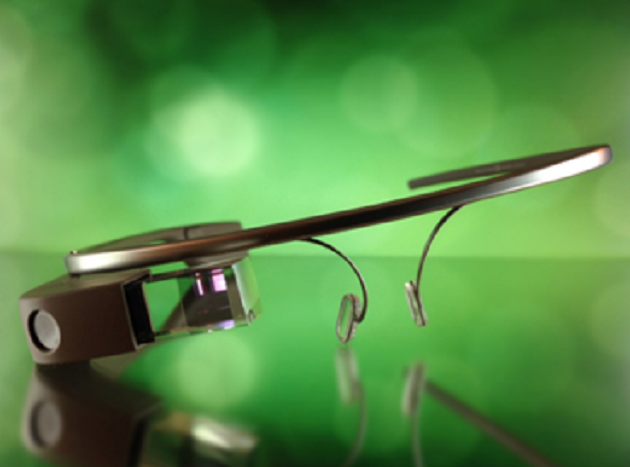Facebook (FB) has changed its name to Meta.
Longtime RiskHedge readers know why this is HUGE news...
In short, Facebook—the sixth largest company in the US—is betting its future on the metaverse.
The metaverse is the exciting new 3D version of the internet, which Chief Analyst Stephen McBride first told us about back in February.
This week in the RiskHedge Report, our analysts will share their unique insights and ways to profit from this big shift.
We kick things off today with microcap expert Chris Wood. Chris says Facebook’s big pivot is a sign of big things to come for one of his favorite spaces: augmented reality (AR).
Earlier this year, Chris shared why AR will be one of the defining megatrends of this decade.
Today, he shares more about this opportunity—and reveals a slam-dunk way to play it.
***
Chris Reilly: Chris… Can you explain what AR is, and how it’s different than virtual reality (VR)?
Chris Wood: VR is a fully immersive experience. A VR headset transports you to either a replica of the real world. Or to a made-up digital world.
I’ve used VR systems to inspect 2,500-year-old Mayan ruins deep in Guatemala’s rainforest… investigate Stonehenge up close… and explore Angkor Wat, the world’s largest religious temple complex, in Cambodia.
I’ve also used VR systems to fish on imaginary lakes… fight laser-shooting robots… and shoot zombies.
You need a safe and open space to do VR. Because you can’t see anything outside of the digital world you’re in.
I was playing the boxing game Creed: Rise to Glory on an old Oculus VR system a few years ago. I came a millimeter away from breaking my fist on a column in my house while throwing a left jab.
Reilly: So VR is an escape from the real world.
Wood: Yes. AR, on the other hand, augments or enhances your real world. It uses technology like smart glasses to overlay digital imagery and information onto what you see.
You’ve likely seen this in movies when a fighter pilot locks onto an enemy jet. The targeting indicator doesn’t physically exist in the real world. It’s a virtual tool to help the pilot aim.
Chris Reilly: Which is the bigger opportunity, VR or AR?
Chris Wood: The VR market is larger today. But the opportunity in AR dwarfs VR.
AR headsets are already improving worker productivity, efficiency, and safety. Take Boeing (BA), for example, America’s biggest aircraft maker. Workers in its factories now use AR smart glasses to assemble complex wire harnesses for airplanes.
Before AR smart glasses, workers had to follow instructions from a paper, laptop, or tablet. But with these glasses they can call up schematics and use voice controls to navigate instructions—all while having their hands free to work.
Boeing says the AR glasses have boosted productivity by 25% and reduced error rates to nearly zero.
Service technicians at ThyssenKrupp Elevator use AR headsets to view service records, safety alerts, and schematics while repairing elevators at One World Trade Center in New York. The headsets have cut repair times by more than 60%.
This is all just the beginning.
Global market intelligence provider IDC expects the AR headset market to grow 146% a year for the next five years.
Most of those headsets will be shipped to businesses. The next step is the consumer market, which will grow to be worth trillions of dollars.
Chris Reilly: Help me paint a picture. What are some different ways everyday people could use AR headsets?
Chris Wood: The possibilities are endless. Say you’re at a baseball game. Your AR headset can pull up stats of players you’re looking at in real time.
New in town? Your AR glasses can direct you to the nearest coffee shop with virtual arrows, similar to a GPS.
Your AR glasses could automatically show you prices of items while shopping.
There’s huge demand for this kind of thing.
In fact, I believe AR glasses will eventually replace our smartphones.
Facebook CEO Mark Zuckerberg agrees. Last year, he said, “While I expect phones to still be our primary devices through most of this decade, at some point in the 2020s, we will get breakthrough augmented reality glasses that will redefine our relationship with technology.”
Chris R: Replacing smartphones? How?
Chris Wood: For one thing, smart glasses will be safer than smartphones. We’ve all heard stories about people getting hurt while they had their heads down looking at their phones.
But smart glasses will be an improvement on smartphones in almost every way.
We’ve all used our smartphones to walk around a town or part of town we’re unfamiliar with.
Wouldn’t it be better to have the directions provided in your field of view?
It’s important for readers to understand that the idea of everyday AR glasses isn’t new. In fact, Google (GOOGL) came out with Google Glass in 2013.
 Source: Wikipedia
Source: Wikipedia
Google Glass featured a small screen located about an inch from your eye in the upper right area of your field of view. Using this screen, you could browse the web and check your email using voice commands.
Google released Glass in February 2013 to a lot of hype. It was featured in TIME magazine, endorsed by celebrities, and touted as the future of smart devices.
Instead, it was a total flop.
Google pulled it from the consumer market in 2015.
Chris Reilly: Why did Google Glass fail?
Chris Wood: Two main reasons.
One, it came equipped with an outward-facing camera. There was no way to tell when a Glass wearer was recording or taking pictures. This made a lot of folks uncomfortable. Talking to a Glass wearer felt like an invasion of privacy.
Two, it was too early. The tech wasn’t good enough yet to do anything useful or solve real problems like a smartphone could.
But as the technology improves, smart glasses will become must-have products.
Chris R: Are other companies working on new consumer headsets?
Chris Wood: Yes, all the big tech companies are pouring billions of dollars into developing consumer AR headsets. That includes Meta (Facebook), Microsoft (MSFT), and Amazon (AMZN). Google’s working on a new one too.
But there’s one standout company… One that’s poised to become the next Apple (AAPL)…
Chris R: Go on…
Chris Wood: APPLE.
Chris R: You’re joking.
Chris Wood: No. Apple is already the largest company on earth, worth $2.5 trillion. It will become a $10 trillion company over the next decade on the back of consumer AR.
Chris R: Why Apple? Why not the other tech giants?
Chris Wood: When it comes to mobile computing, Apple has always made the best hardware.
Think about the iPhone. It wasn’t the first smartphone. Companies like Palm and Blackberry (BB) had been selling smartphones for years. But Apple was the first to tie together lots of features, including cameras and touch screens, in a sleek way that people liked.
Same thing with the iPad.
Apple is now preparing to take the AR market by storm.
The company quietly invested billions to develop AR technology. And it’s rumored to have a secret team of hundreds of employees working on these projects.
We know for sure Apple is working on at least two AR projects. One is an AR headset rumored to target the enterprise space, which is expected to hit the market in late 2022.
The other is a sleeker pair of AR glasses targeted for everyday use. Analysts expect these AR glasses to hit the market as early as 2023.
There’s good reason to think the everyday AR glasses will be an instant success.
In addition to Apple’s track record, just think about the huge number of folks who already use (and love) the company’s products.
There are about a billion iPhone users in the world today.
That’s an enormous user base. Many of them will be easily converted to AR glasses… and generate billions in sales in the process.
In short, Apple is my “slam dunk” way to play the AR megatrend.
Chris R: Thanks, Chris. Talk soon.
Chris Wood: Anytime. And one last thing—I encourage readers to ask me any questions they have on AR at chriswood@riskhedge.com. I can feature them in a follow-up RiskHedge Report.
Chris Reilly
Executive Editor, RiskHedge




